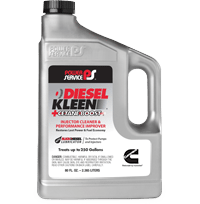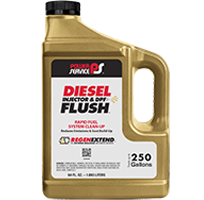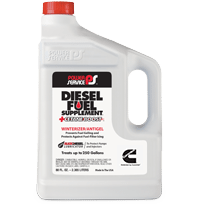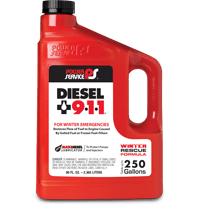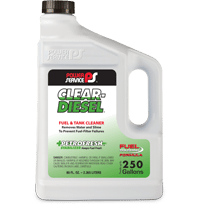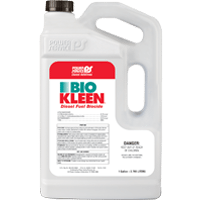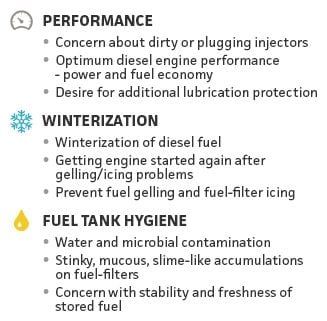All Articles & Videos
Diesel 911: the number-one emergency-use product for diesels for decades
Proven – by the generations of diesel operators that swear by Diesel 911. Diesel drivers know how quickly things can turn bad when a fuel-filter plugs in cold weather. Fuel-filters plug in winter for two reasons: (1) ice and (2) wax.
Read MoreUse the Power Service 3-Step Winter Prep to outsmart winter!
The good news is that you can outsmart winter with our simple 3-Step Winter Prep Guide!
Read MoreHave You Ever Heard of Asphaltenes?
Dark deposits on your fuel-filters could be asphaltenes. Learn how to remove them and prevent them from forming in the first place with Diesel Kleen.
Read More“You’ve Got Questions, We’ve Got Answers” What is Top Tier Diesel Fuel?
Video Blog Series “You’ve Got Questions, We’ve Got Answers” Garth Redifer, Power Service Products, Vice President of Sales explains… – What is Top Tier Diesel Fuel? – What is Premium Diesel Fuel? – And How do Power Service Products’ Additives Transform Diesel Fuel into Premium Diesel?
Read MoreDiesel Particulate Filters, Regens and the Combustion Process in Diesel Engines
Advanced emissions systems on newer diesel engines often utilize diesel particulate filters (DPFs) that help trap harmful emissions from being released into the air. When these filters start to fill up, they must go through a regeneration (regen) process that converts the soot accumulated in the filter into ash using chemical reactions at high temperatures. Regens have plagued diesel operators with reduced power and performance throughout the past several years and, unfortunately, High Pressure Common Rail (HPCR) diesel engine technology takes most of the blame. There are multiple factors contributing to the combustion issues experienced by today’s diesel engines. Fortunately, the primary issues can be easily addressed — allowing the system to function properly and achieve maximum combustion — by using Diesel Kleen +Cetane Boost. 1. Injector Deposits – Modern injectors have tolerances of 1 to 3 microns, so microscopic deposits will lead to injector plugging and/or insufficient fuel atomization. 2. Low Cetane – Naturally occurring cetane lower than 50 does not allow for maximum combustion, leading to an increase of unburnt fuel in the combustion chamber. DIRTY INJECTORS lead to insufficient injection and poor atomization, resulting in reduced fuel combustion, power and performance. CLEAN INJECTORS lead to proper […]
Read MoreHow Treating Your Diesel Fuel with Diesel Kleen Will Save You Money at the Pump
Diesel fuel costs recently have soared to all-time highs. One way to reduce costs is with a quality diesel fuel additive like Diesel Kleen +Cetane Boost. Here’s why. Clean Dirty Fuel Injectors Over time, fuel injectors get clogged. When deposits form, the injector will stick and disrupt flow into the combustion chamber. If the injector sticks open, excess fuel can end up in the cylinder — resulting in increased emissions, decreased fuel economy and excessive power loss. If the injector sticks closed, the resulting insufficient amount of fuel leads to power loss and a rough-running engine. External deposits form on the injector tip to impede nozzle spray patterns and reduce combustion efficiency. Diesel Kleen +Cetane Boost cleans dirty injectors and prevents injector sticking in both High-Pressure Common Rail (HPCR) and older systems. Boost Cetane Levels Fuel economy suffers when fuel is not completely burned during the combustion process. Cetane is a high energy compound that improves overall combustion. The cetane number is a measure of the ignition quality of diesel fuel – the higher the cetane number, the shorter the ignition delay. Fuels with higher cetane numbers ignite more quickly and burn more completely, resulting in smoother running […]
Read MorePower Service Recommended Year-Round Maintenance Schedule
To ensure peak performance and protection of your diesel, check out our Year-Round Maintenance Schedule video to learn more.
Read MoreA Beginner’s Guide To Understanding Diesel Engines
By Mike McGlothlin It’s no secret that the majority of Americans are more accustomed to gasoline engines than diesels. Statistics gathered by R.L. Polk confirm this, as just 2.8 percent of all registered passenger vehicles (cars, SUV’s, pickup trucks, and vans) ran on number 2 diesel fuel in 2013. To be sure, most folks in the U.S. expect to find spark plugs or coil packs when they pop the hood, not turbochargers and injection pumps (two very key elements on nearly every diesel engine you’ll come across, hence the term “turbodiesel”). In order to gain an understanding of the differences between diesel and gasoline engines, we’ll begin with all of the similarities shared between the two. The type of fuel burned by either power plant doesn’t change anything in relation to the engine’s general makeup (i.e. a crankshaft spinning, connecting rods and pistons moving up and down, air being pumped in, and exhaust being routed out). In fact, the same basic architecture is very much the same. But what goes on in-cylinder in a diesel is vastly different from what you’ll find in its gas-powered counterparts. The easiest way to explain the difference between gasoline and diesel engines is with […]
Read MoreBobby Likis Car Clinic Radio Show
Jeff Kramer, Vice President of Sales talks about Power Service Products
Read MoreCar Doctor Radio Show
Jeff Kramer, Vice President of Sales talks about Power Service Products
Read More

